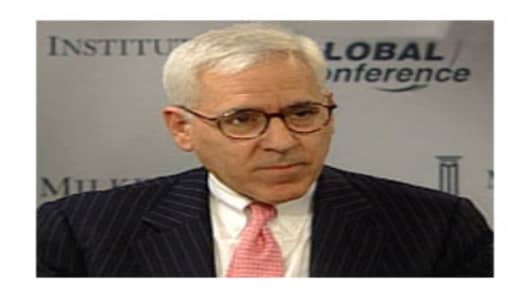They were the kings of the power and money world in 2006. We are talking about private equity and the billions of dollars of deals these buyout firms put together. So, what lies ahead for private equity? The Wall Street Journal's Henny Sender found out, during her one-on-one interview with David Rubenstein, Co-Founder of the Carlyle Group.
Henny Sender: We've seen an explosion of big deals, more and more deals. How big will the deals get and what, if any, is the constraint that you see?
David Rubenstein: Large returns seen in past years may not possible in future. There's no doubt that the large buyout funds and the large buyout deals have yielded extraordinary returns compared to almost anything else that's available. And as a result investors are giving us a lot of money and we're trying in turn to make sure they get the kind of returns that they want. It may not be possible in the future to get as large a return for an investor that we've gotten in the last couple of years. When I say us, I mean the industry, but I do think the returns will be pretty good compared to alternative returns someone might get in the public markets for example.
Henny Sender: A lot of people are saying the recent deals have been financed so easily. Would the debt and equity markets have trouble financing an $80 billion deal today?
David Rubenstein: An $80 Billion deal today may be difficult. I think it's not impossible that a deal larger than say $30-40 billion could be done, $80 billion today might be difficult. But one thing you have to take into account is this; in 1985 or 1990 most of the money for the debt of these deals came from banks. Banks were basically the source. Today the sources are much wider, there are hedge funds, there are leveraged credit funds, there are pension funds that are putting up money for debt and in fact some buyout firms have their own debt facilities and so it's not the same as comparing what happened 5 or 10 years ago. You have so many more sources of credit, so I wouldn't rule out the possibility that buyouts could get much larger because there are so many more sources of debt than there were years ago.



